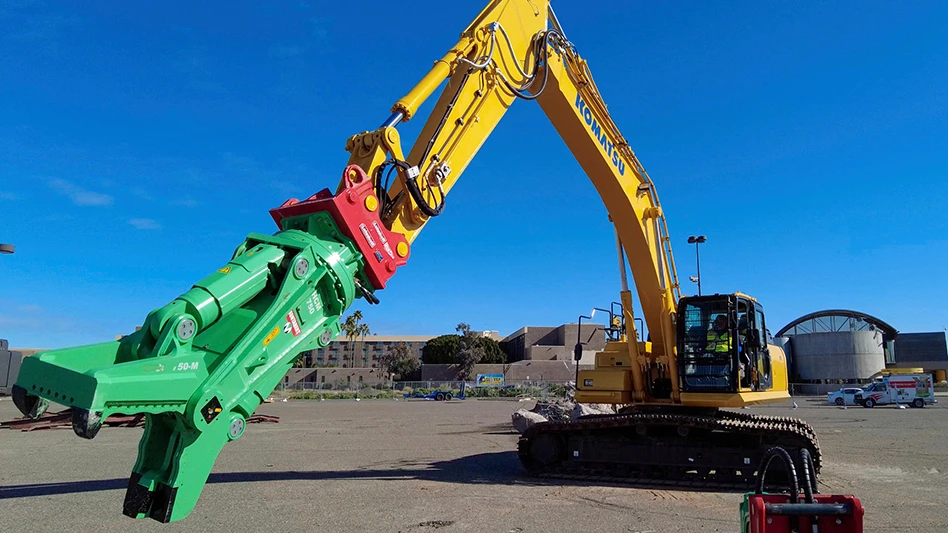
©KariDesign - stock.adobe.com
Anaergia Inc. has announced that one of its subsidiaries, Rialto Bioenergy Facility LLC (RBF), has initiated voluntary Chapter 11 bankruptcy proceedings in the U.S. Bankruptcy Court for the Southern District of California.
RBF anticipates that, during the restructuring, it will continue operating its multi-feedstock bioenergy facility in Rialto, California, which can convert up to 700 tons per day of organic waste, such as food and yard waste and biosolids, into renewable natural gas (RNG) with the capability to generate renewable electricity, soil amendments and fertilizer.
RBF, with offices in Carlsbad and a facility in Rialto, California, is 51-percent owned by Anaergia Services LLC, a wholly-owned Anaergia subsidiary.
The Chapter 11 filing by RBF was initiated after much discussion and review of alternatives. Anaergia, Burlington, Ontario, supports this decision as a necessary step to protect its long-term interests in RBF.
As a result of a lack of feedstock available to the facility, RBF has been unable to produce sufficient revenue to cover its costs and debt service. Anaergia says the feedstock shortfall is due to a delay in the implementation and enforcement of laws requiring organic waste diversion from landfills by the city of Los Angeles as required under its contracts with private waste management companies, as well under California’s SB 1383. The company says feedstock ramp-up is slow industry-wide.
Anaergia says Los Angeles is operating under a corrective action plan stemming from its delayed efforts to adopt and enforce the law’s waste diversion requirements. SB 1383’s implementation was previously delayed because of the effects of the pandemic. Los Angeles adopted an implementation ordinance in late 2022, which is fully enforceable in January 2024, according to the company.
Anaergia Spokesperson Melissa Bailey says the company is not sure exactly when Rialto will exit restructuring, but it’s tied to feedstock.
“This is directly related to the rate of the roll-out of organics collection by commercial and multi-family generators in Los Angeles, and the faster LA will get compliant, the faster we can be operating in full as was planned by us and the state for the facility,” she says.
Recycling Today Media Group has reached out to the city of Los Angeles and CalRecycle for comment.
RELATED: San Diego to construct $77M composting facility | California law requiring organics to be separated from recycling takes effect
The League of California Cities sent a letter to the state legislature and Gov. Gavin Newsome to "honor the $345 million allocated for organic waste recycling grants in recent state budgets."
The organization representing California cities says the bill cannot implemented without state support, adding that the California Department of Recycling and Recovery (CalRecycle) has estimated putting SB 1383 into action could cost local governments up to $20 billion over the 10 years.
Anaergia Chief Operating Officer Yanic Scherson, who also serves on the RBF board and as a vice president of the subsidiary, says the facility is needed by the state to help SB 1383 succeed.
“Debt restructuring will allow RBF to address its liquidity challenges, preserve its ability to ramp up operations as the availability of feedstock is expected to increase in tandem with enforcement by the city of Los Angeles of subscription to organic waste collection and landfill diversion requirements mandated by ordinance and state law,” Scherson says.
Subject to court approval, RBF, as the borrower, intends to enter a debtor-in-possession (DIP) financing facility with a lender that would enable RBF to continue to operate its business and meet its financial obligations, including for labor, supplies and other obligations as approved by the court. Anaergia will not be guaranteeing the DIP financing facility because the company says RBF has sufficient value to support the new loan.
During restructuring, Anaergia would cease supporting RBF with further loans or equity contributions. As a result, Anaergia expects the restructuring to have a positive impact on its 2023 cash flow. Anaergia’s 2023 guidance is not expected to be materially changed by the anticipated deconsolidation of RBF. Anaergia says expects that it will cease to control RBF from an accounting perspective, and therefore cease consolidating RBF in its financial statements for the quarter ending June 30.
At the end of the first quarter, Anaergia CEO and Chairman Dr. Andrew Benedek announced the company is shifting to a "capital-light" model to take advantage of RNG tailwinds and the large amounts of capital RNG operations are attracting.
Anaergia anticipates that RBF will exit bankruptcy retaining equity value and will continue to be a valuable part of Anaergia’s portfolio of global renewable natural gas assets.
Get curated news on YOUR industry.
Enter your email to receive our newsletters.Latest from Construction & Demolition Recycling
- Radius loses money, says merger on track
- Cielo investor requests annual meeting
- CDE sets up washing plant on Long Island, NY
- NWRA: NIOSH cuts a step in the wrong direction
- Ferrous price hikes could be poised to pause
- Northstar secures 15-year lease extension for asphalt shingle recycling facility
- Greenwave asks for SEC filing extension
- Construction Plastics Initiative lines up projects





